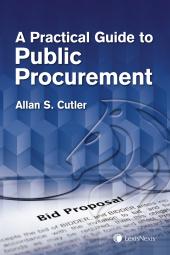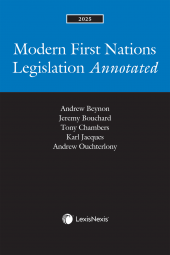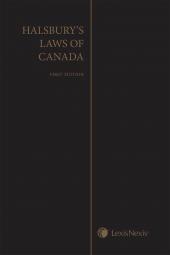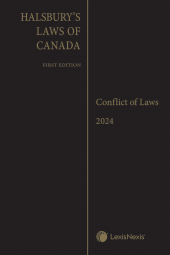A Practical Guide to Public Procurement
A step-by-step reference to help you understand the public procurement process, with useful pointers for developing winning proposals.
One Year Subscription Only Terms
Subscribers receive the product(s) listed on the Order Form and any Updates made available during the annual subscription period. Shipping and handling fees are not included in the annual price.
Subscribers are advised of the number of Updates that were made to the particular publication the prior year. The number of Updates may vary due to developments in the law and other publishing issues, but subscribers may use this as a rough estimate of future shipments. Subscribers may call Customer Support at 800-833-9844 for additional information.
Subscribers may cancel this subscription by: calling Customer Support at 800-833-9844; emailing customer.support@lexisnexis.com; or returning the invoice marked 'CANCEL'.
If subscribers cancel within 30 days after the product is ordered or received and return the product at their expense, then they will receive a full credit of the price for the annual subscription.
If subscribers cancel between 31 and 60 days after the invoice date and return the product at their expense, then they will receive a 5/6th credit of the price for the annual subscription. No credit will be given for cancellations more than 60 days after the invoice date. To receive any credit, subscriber must return all product(s) shipped during the year at their expense within the applicable cancellation period listed above.
Product description
The competitive bidding process in the public sector has become more and more complex over the past few years, making the need for effective, compelling proposal writing and attention to detail increasingly important. In A Practical Guide to Public Procurement, Allan S. Cutler leverages his decades of experience in public procurement to shed light on the practice and procedure related to the bidding process and offer valuable insight and guidance.
End-to-end direction
This practical procurement resource strips the bid and tender process down to its essential elements to make it understandable for anyone regardless of their level of industry experience. Cutler's text demystifies the complex world of procurement by explaining the process from start to finish in plain English. Divided into two sections – "Understanding the bid and proposal process" and "How to respond to a RFP – winning proposal writing" – includes easy-to-understand examples and useful checklists for succeeding in the world of procurement.
Written for students, professionals and lawyers, Cutler developed this how-to guide for drafting procurement documents in response to requests from industry colleagues seeking help understanding the process.
The features and benefits of this resource include:
- Guidelines and suggestions for writing proposals to help bidders submit bids that give them the best possible chance of securing the work
- Practical checklists and step-by-step instructions to guide the reader through the bid and tender process
- Case studies and analysis of sample Request for Proposal criteria to provide a breakdown of the RFP and explain to the reader the purpose of each section and what the tenderer is looking for in the response
Handy reference
A Practical Guide to Public Procurement would be particularly useful to:
- College and university students who could use the text to supplement course material for understanding the procurement process
- Procurement professionals who could use it as a guide to better understand the procurement process, including valuable tips and best practices for preparing a bid
- Procurement lawyers who want to increase their knowledge of procurement law and could use a practical handbook for participating in the actual procurement process
Table of contents
PART I: Understanding the Bid and Proposal Process
Chapter 1: Introduction
Chapter 2: The Bid Process
Chapter 3: R. v. Ron Engineering and Construction (Eastern) Ltd.
Chapter 4: Bid Documents
Chapter 5: Request for Information (RFI)
Chapter 6: Sole Source Contracts
Chapter 7: Competitive Bidding
Chapter 8: Request for Proposal
Chapter 9: Bid/No Bid Decision Making – The First Step
Chapter 10: The Proposal Team
Chapter 11: The Red Team
Chapter 12: A Team of One
Chapter 13: Reviewing Bid Documents
Chapter 14: Decoding the RFP
Chapter 15: Problems with RFPs
Chapter 16: How to Analyze Evaluation Criteria
Chapter 17: How "Rated Requirements" are Evaluated
Chapter 18: How Price Factors into the Evaluation
Chapter 19: Questions
Chapter 20: Debriefings
PART II: How to Respond to a RFP – Winning Proposal Writing
Chapter 21: Responding to a RFP
Chapter 22: The Bid/No-bid Decision
Chapter 23: Writing the Proposal
Chapter 24: The Red Team
Chapter 25: Managing Bad RFPs
Chapter 26: Proposal Response – Elements
Chapter 27: Boilerplate
Chapter 28: Graphics
Chapter 29: Version Control
Chapter 30: Empty Assertions
Chapter 31: Presentation of the Proposal
Chapter 32: Pricing Strategies
Chapter 33: Proprietary Information
Chapter 34: Think Like An Evaluator
Chapter 35: Defensive Proposal
Chapter 36: Bidders' Conferences and/or Site Visits
Chapter 37: Oral Presentations
Chapter 38: Large and Small Proposals: The Difference
Chapter 39: Alternate Proposals
Chapter 40: Incumbents Disadvantage
Chapter 41: Proposal Preparation: Outsourcing
Chapter 42: Public Sector vs. Private Industry – A Comparison
Chapter 43: Strategic Alliance and Subcontractors
APPENDICES
Appendix A – Request for Information/Letter of Interest
Appendix B – Advance Contract Award Notice (ACAN)
Appendix C – Case study: RFP Example
Appendix D – Letters
Appendix E – The Top Ten (Useful Checklists)
Appendix F – Case Study
Appendix G – Template for Proposal Preparation
 Lexis Nexis
Lexis Nexis 



